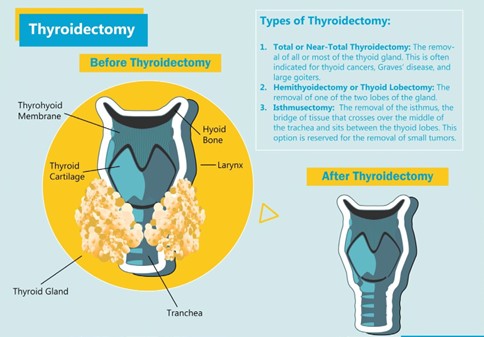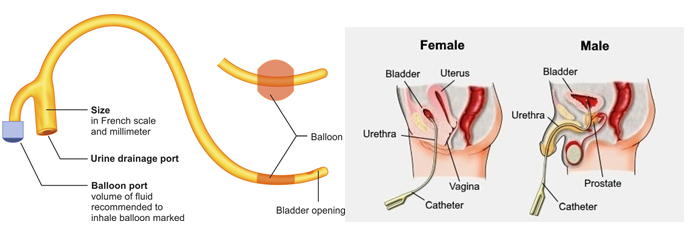A 98-year-old patient with benign prostatic hyperplasia has a markedly distended bladder and is agitated and confused. All the following orders are received from the emergency department health care provider. Which order should the nurse act on first?
Schedule for IVP.
Draw blood for blood urea nitrogen (BUN) and creatinine.
Insert 16 French retention catheter.
Administer lorazepam (Ativan) 0.5 mg.
The Correct Answer is C
The nurse should act on the order to insert a 16 French retention catheter first. The patient's markedly distended bladder and agitated and confused state suggest acute urinary retention, which can be relieved by inserting a catheter to drain the urine. This is a priority intervention as urinary retention can lead to serious complications such as bladder rupture, hydronephrosis, and renal failure. Once the catheter is inserted and the patient's bladder is drained, the healthcare provider can order further tests such as an IVP or blood tests to assess renal function. The order for lorazepam can be addressed after the catheter is inserted and the patient's urinary retention is addressed.
Nursing Test Bank
Naxlex Comprehensive Predictor Exams
Related Questions
Correct Answer is D
Explanation
This is a critical finding that could indicate bleeding or compromised airway, both of which are potentially life-threatening complications following a thyroidectomy. Immediate intervention may be necessary to prevent further harm to the patient. The other options are important to note and should be addressed, but they do not require immediate intervention as the swelling in the neck does.

Correct Answer is B
Explanation
Abdominal discomfort an hour after a meal is a common symptom of a gastric ulcer because the stomach is where food is initially processed, and stomach acid is most concentrated. In contrast, duodenal ulcers typically cause pain 2-3 hours after meals, as food moves out of the stomach and into the duodenum, where it encounters duodenal acid.
A positive stool occult blood test is a non-specific finding that can be caused by many gastrointestinal conditions, including peptic ulcers. It does not indicate the location of the ulcer.
The number of ulcers the client has had in the past does not indicate the location of the current ulcer.
Normal hemoglobin and hematocrit levels do not provide information about the location of the ulcer.


Whether you are a student looking to ace your exams or a practicing nurse seeking to enhance your expertise , our nursing education contents will empower you with the confidence and competence to make a difference in the lives of patients and become a respected leader in the healthcare field.
Visit Naxlex, invest in your future and unlock endless possibilities with our unparalleled nursing education contents today
Report Wrong Answer on the Current Question
Do you disagree with the answer? If yes, what is your expected answer? Explain.
Kindly be descriptive with the issue you are facing.

